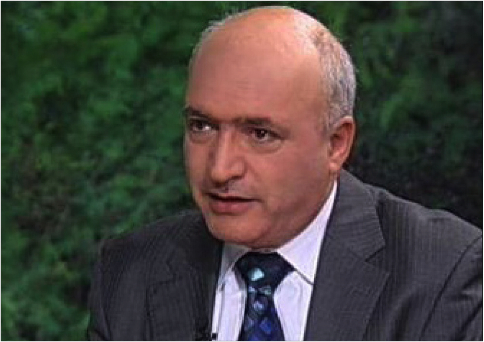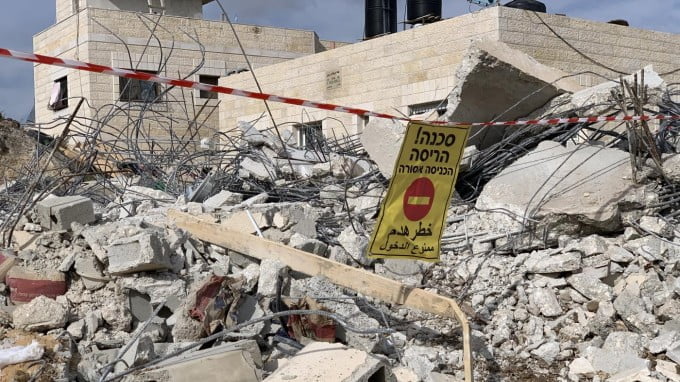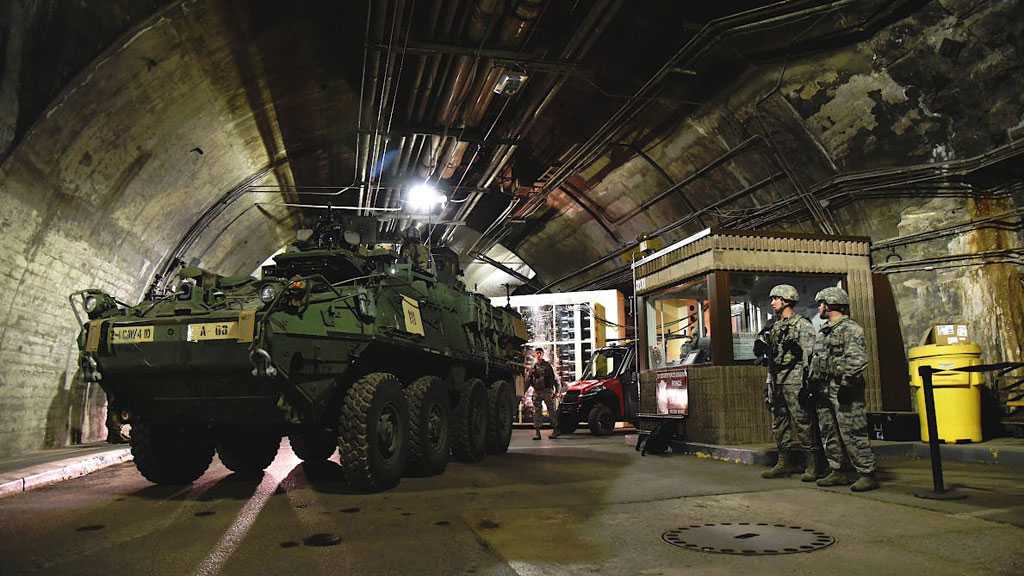By Eva Bartlett
*(All photos taken from the Facebook page “Asma al Assad – Syria’s First Lady“)
I had been sitting in a small entrance room for what seemed less than a minute when the door opened and Syria’s first lady, Her Excellency Asma al-Assad, greeted me with a warm smile, welcoming me inside a slightly larger sitting room. In official meetings I had had over the years in Syria, I was accustomed to a secretary or assistant escorting me into the meeting room. Asma al-Assad, however, does things up close and personal.
Over the years in Syria, I had heard from people I encountered that she and President Assad routinely meet with their fellow Syrians in crowded venues, mixing and engaging with the people. I had also seen countless photos and videos of the Assads visiting Syrians in their homes around the country.
While I have been to Syria over a dozen times in the past seven years, it had never occurred to me to request a meeting with the first lady. But when that opportunity recently presented itself, I leapt at the chance to speak with one of the most beloved figures in Syria, and to hear her thoughts on her country, her fellow Syrians, and on the plights they are all in. And as it turned out, it was a chance to hear her poignant insights on her role as a mother, a citizen, the wife of the President and a leader in her own right.
Even before assuming the role of Syria’s first lady, Asma al-Assad made it a priority to focus on the development of Syria, and over the years since she’s headed organizations focusing on a range of development issues, including financial, educational and vocational. To effectively work on the many issues she does, her level of awareness of Syrians’ situation on the ground is crucial.
She has travelled widely around Syria, to the smallest villages, to meet with those who could benefit from the various organizations she heads. Videos abound of the first lady, and also the president, visiting wounded soldiers, families of martyrs, cancer patients, and impoverished Syrians, greeting them with hugs and kisses to their cheeks. They often sit with them on the floor of their homes, listening to them talk about their experiences.
In fact, in an interview she gave in 2002, Asma al-Assad explained:
“I wanted to meet [ordinary Syrians] before they met me. Before the world met me. I was able to spend the first couple of months wandering around, meeting other Syrian people. It was my crash course. I would just tag along with one of the many programmes being run in the rural areas. Because people had no idea who I was, I was able to see people completely honestly, I was able to see what their problems were on the ground, what people are complaining about, what the issues are. What people’s hopes and aspirations are. And seeing it first-hand means you are not seeing it through someone else’s eyes. It was really just to see who they are, what they are doing.”
As I already had an appreciation for what she’s accomplished I approached our recent meeting with a great degree of admiration for the person she is and the compassion she exudes.
Since this meeting was not a formal interview, I did not seek to record the over two hours of conversation with Her Excellency. Immediately after leaving, however, I did jot down as many notes about our conversation as I could recall, and will do my best to do justice to what Asma al-Assad said, sometimes quoting her but in general paraphrasing her words.
Also, while I wish to express the respect she deserves in her role as the first lady, and whereas most would call her Your Excellency, I’m also aware that she isn’t fond of titles and fanfare, one of many traits evidencing her humility. Thus, to find middle ground I will either refer to her as the first lady or Asma al-Assad.
Finally, although I’ve begun this essay with focus on Asma al-Assad and her character, what follows is really about Syria, through her eyes, and at some points my own. From the way she spoke, it is very clear that everything she does for her country is for her country, and she does so with an admirably passionate commitment.
I was admittedly anticipating our meeting, wondering how it might unfold. As it turned out, from the initial greeting, conversation flowed naturally and comfortably, which I attribute not only to Asma al-Assad’s ability to put those she meets with at ease very quickly, but also to the genuine interest and attention she pays everyone she meets.
She asked about my family, and was concerned about my own well being—to which my answer was something along the lines of: I’m very gratefully in the place I would most want to be right now. She asked about my experiences in Palestine in general, and my years in Gaza specifically. This was not feigned interest, as the first lady has consistently shown support for Palestine.
In late 2008/early 2009, when Israel was committing a massacre of Palestinian civilians in Gaza who had nowhere to flee, I was living in Gaza, and during the war riding in ambulances, documenting Israel’s war crimes. For three weeks, civilians were bombarded relentlessly—including with White Phosphorous, DIME, dart (flechette) bombs, drone strikes, Apache and tank shelling, and the massive one ton bomb airstrikes. In the end, Israel’s assault killed over 1400 Palestinians.
During an interview she gave to CNN at the time, Syria’s first lady spoke on the horrors which Palestinians were enduring during the massacre and also due to the inhumane Israeli siege on Gaza, rendering Gaza a prison. She spoke movingly of the over 80 percent of Palestinians in Gaza reliant on food aid to merely survive, the nearly 1 million (there are far more now) who don’t have access to clean water, and on many of the other sordid realities about life under siege in Gaza.
“This is the 21st Century. Where in the world could this happen? Unfortunately, it is happening. Just imagine your children living in Gaza. Mothers in Gaza can’t cook. Why can’t they cook? Because they don’t have access to fuel, they don’t even have access to the basic foodstuffs that are required to get a meal together, so children don’t eat. You put your children to bed at night and you expect to see them in the morning. That’s a luxury that people in Gaza just do not have. So what would it be like for you, living under those circumstances?”
WORKING FOR SYRIANS
During our meeting I commented on her work drive, knowing that throughout the past months when around the world things have slowed to a halt she has continued working on issues related to Syria’s development and empowering Syrians from all walks of life.
In May she participated in a workshop with staff of Jarih al-Watan (The Nation’s Wounded), a national veteran support program created in 2014 to help injured soldiers rebuild their lives and reintegrate back into society. The program provides support in several key areas including physical rehabilitation, mental health, education grants, vocational training and financial aid for small and medium enterprises.
The first lady explained that working hard is natural for her. She graduated from university quite young and started working professionally at age 21. When it comes to her work for Syrians, it’s more than her natural drive, it is something she is compelled to do for her country.
She talked to me about her cancer treatment (2018-2019), saying that people likely expected her to stay home, to discontinue work or at least work less because she was ill and undergoing treatment. But for her, how could she, for example, delay a child from getting treatment for a hearing aid, or delay a patient from getting medical care, “simply because I was feeling tired.”
Most people who have had a cold or flu would stay home during their illness, justifiably so. That Asma al-Assad refused to do so while enduring cancer treatment and all of the painful and exhausting side effects speaks volumes to her devotion to her people, a point worth stressing given that Western media has done their utmost to vilify her and the President.
Apart from her development work, the first lady quietly works to change antiquated mindsets on how to do things in Syria. She is also keen to encourage people in general, especially children, including her own, to think for themselves.
“We are trying to encourage young people to ask questions and think critically, which should be in line with democracy and freedom of opinion…”
Encouraging critical thinking and questioning of everything are traits that make for a more open society. For at least the past decade, the US and allies have preached about wanting freedom and democracy in Syria. But while gushing about freedom, they were funding and supporting terrorism, illegally occupying Syrian land, stealing Syrian oil, and prolonging terrorism in the country.
The forward-thinking approach Asma al-Assad embodies could lead to changes for the better in Syria. Yet, because the West is on a mission to impose a government which will do America’s bidding, people and policies that are actually good for Syria are dismissed and ridiculed by America and her allies.
Meanwhile, ironically, in Western countries, censorship has become increasingly rife, with dissenting voices being deleted from Youtube, Twitter, and Facebook, and with critical articles on current events being labelled as “fake news” by Western-government affiliated so-called “fact checkers”.
The first lady noted, “People are being steered by a narrative. They are not allowed to have an opinion any longer. There’s now no freedom of speech in the West.”
IMPACTS OF AMERICA’S DEADLY SANCTIONS
In June, America again ratcheted up its decades-old sanctions on Syria, adding a new round of sanctions meant to utterly debilitate the people of Syria— who’ve already suffered nearly ten years of war.
Every day where I am now in Syria, I hear and see things that drive home just how utterly brutal the US sanctions are: a friend whose aunt can’t get the medications needed for her cancer, another friend whose cousin died as a result of not getting the medications he needed for his chronic illness.
The sanctions are deliberately targeting Syrian civilians, and that is the intent of the United States. The US pretext of “helping Syrians” by sanctioning their country is sociopathic double-speak. The reality is they are slowly killing Syrians.
Under the latest sanctions, civilians are denied medicines, access to up to date medical equipment, and as a consequence, denied medical treatment.
The first lady spoke on how much harder life has gotten for Syrians.
“The medical equipment in Syria (like radiotherapy) needed to treat cancer patients is outdated and it is getting harder and harder to maintain these machines and keep them working. With the sanctions, chemotherapy drugs have become harder to source decreasing the likelihood of patients surviving cancer. If I was facing cancer now instead of two years ago, I wouldn’t be able to get the needed treatment. This is the case for Syrians now.”
I asked about importing the materials needed for local manufacturing. But the problem is, she told me, companies cancel contracts for fear of being punished by the US for violating sanctions.
The first lady asked me what I noticed in recent visits to Syria. I said that I had imagined things would be better after the 2018 liberation of eastern Ghouta and other areas occupied by terrorists and the cessation of their daily mortar and missile attacks on residential areas of Damascus.
But although there is peace, people I meet are despondent about the future. Young people want to leave, to find work or study abroad. And while Syria has started to rebuild, the truth is we don’t know how long that will take, particularly given that the latest sanctions target reconstruction as well. Nor do people know how or when the economy will improve.
The shattered economy is largely a product of ten years of terrorism, war, the sanctions, and the US-Turkish theft and destruction of Syria’s resources, particularly oil. The Syria-wide bout of crop fires in wheat and barley growing regions has devastated farmers and contributes to the country’s economic woes. Farmers blame US and Turkish occupation forces for deliberately setting some of the fires, with Turkish forces even allegedly firing on farmers to keep them from extinguishing the flames.
Destroying the economy, starving the people, bringing people to their knees, in hopes they will vote against their president. That is the US strategy.
However, the US and allies have from day one underestimated the Syrian people. Syrians have shown the world the meaning of steadfastness, facing the most powerful nations and their terrorist proxies, and rising undefeated. But doing so with untold, tragic losses.
HONOURING THE SACRIFICES OF SYRIAN SOLDIERS
The first lady spoke of supporting micro businesses as a long term strategy to improve the economy for all, not just for some. This is something she’s been doing for nearly twenty years in Syria, with a variety of initiatives on microfinance, funding and training.
Tied into this is the vocational training that enables startup projects.
This June, at Nasmet Jabal, in a mountainous area in northwestern Syria, I saw wounded former Syrian soldiers receiving vocational training, learning cheese and yogurt making, staples of the Syrian diet. In previous years, at a Damascus community centre supported by the Syria Trust, I saw women learning sewing skills, likewise to enable them to be employed or start their own businesses.
When speaking of her and her husband’s approach to raising their children, Asma al-Assad noted the importance of their children knowing the sacrifices of Syrian soldiers, stressing that her children are able to do the most basic things in life—walk, study, even just be alive—precisely because the army has defended Syria, and in many cases with soldiers paying a deep price in doing so.
This is one reason their three children frequently appear with the first lady and president in their visits to wounded soldiers.
Last month at the vocational training, I heard the testimonies of a number of such wounded soldiers, suffering injuries that should be life-shattering. But like wounded soldiers I’ve met over the years, they shared an inspirational drive to rebuild their lives, physically, materially and emotionally
In February 2011, Vogue published a surprisingly honest article on the first lady and her work for Syria, titled “Asma al-Assad: A Rose in the Desert.” Although Vogue later removed it from their website, I would encourage people to read the archived copy. It gives a detailed sense of the work and life of the first lady. The author spent several days with Asma al-Assad, getting informative glimpses into the workings of her foundations, and of the first lady herself.
I was told some months ago that when the first lady learned of the title, she was not pleased as one might have expected.
“I am not the only rose, you are all roses,” she said to a room of women at the Syria Trust for Development.
Throughout Syria’s history women have played prominent roles, from Queen Zenobia in the 3rd century AD, to women defending Syria against terrorism, to Nibal Madhat Badr first female Brigadier General in the Syrian Army, to the mothers of martyrs.
Syria’s Vice President, Najah Al-Attar, is a woman, as is Bouthaina Shaaban, media and political advisor to the president. Armenian MP Nora Arissian and former independent MP Maria Saadeh are among countless others.
Asma al-Assad also balked at the portrayal of Syria as a desert, a portrayal physically depicting the country as a vast sandy region, but also incorrectly implying a lack of culture and education, a sense of backwardness.
Just as the cultural mosaic is vast and varied, so is Syria’s landscape, with snowy mountains, steaming coastal areas replete with citrus and banana trees, rolling hills in the northwest, and yes desert areas to the east.
Anyone who has had the fortune to come to Syria likewise is aware of how empowered women are, how rich the culture is, and how valued education is. Art and music flourish here. Teenagers participate in science Olympiads.
In the past four months, I’ve had some opportunities to see more of Syria’s beautiful landscapes that I’ve described. Prior to the war, Syria was a popular tourist destination, particularly for its rich culture and landscapes, as well as for its ancient areas and cities and historic sites.
But historic and cultural sites aside, there is an aspect of Syria’s history and culture that the first lady is extremely worried about losing: the intangible culture, customs passed down through generations. A dialect gets lost because people who fled an area sometimes will not return.
She told me of a village woman who still hand makes Freekah (whole grains of wheat harvested while still green) in the traditional way. But most young people in the village have left, so that tradition won’t be passed down.
Syria is trying to document its intangible culture, a monumental task considering how much there is to document.
FINAL THOUGHTS
I’ll conclude by saying that whereas over the past decade there has been a systematic effort by Western media, politicians and government-aligned “human rights” groups to vilify the first lady, president and army, the reality on the ground is in stark contrast to the propaganda emanating from Washington.
Anyone who has followed the war on Syria, and the Western aggression against so many nations, will be aware that one of the first things America and allies does is to vilify the leadership, those same leaders they may have previously praised as being moderate.
The abrupt removal shortly after publication by Vogue of its feature on the first lady is a perfect example of the media being directed to not allow any positive reflections on Syria’s key figures. Only cartoonish denominations are allowed in Western media now. The 2002 interview with Asma al-Assad which I referenced at the start was published in the Guardian, an outlet which has since become a prime source of the most vile war propaganda against Syria and the whitewashing of terrorists’ crimes.
Meeting Syria’s first lady confirmed what I already knew from speaking with countless Syrians over the years, and from observing from afar the work she does: she is a strong, intelligent, down to earth, and compassionate woman dedicated to empowering and helping her fellow Syrians.
I am extremely grateful for the time I had with her. At a time of global instability, sitting with Asma al-Assad was calming and inspiring.
Filed under: Face Book, Syria, Youtube | Tagged: Asma Assad, Censorship, Eva Bartlett, Fake News, Freedom of expression, Freedom of opinion, Google and Zionism, Israeli Crimes crimes against humanity, sanctions, Siege on Gaza, Social Media Fascism, Syrian steadfastness, US Oil Robbery | Comments Off on IMPRESSIONS FROM AN INFORMAL MEETING WITH ASMA AL-ASSAD, SYRIA’S FIRST LADY











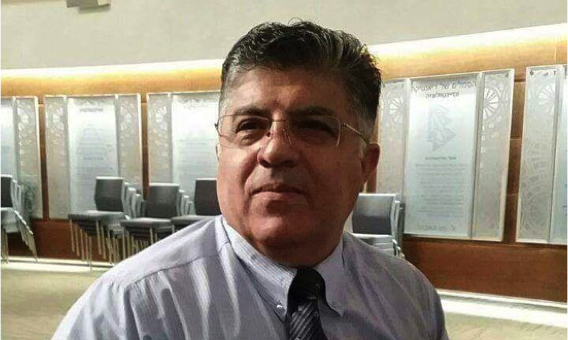




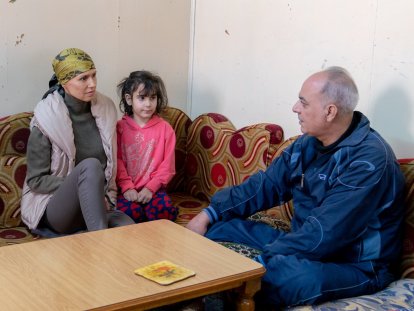


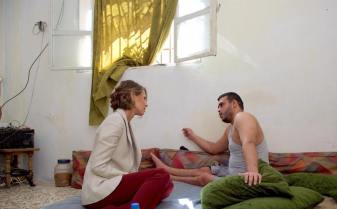







 Syrian army units in cooperation with residents found a huge number of human organs saved inside transparent bottles including chloroform in one the hideouts of terrorists in Ghadfeh village in Maarret al-Noaman region in south Idlib. According to the Syrian News Agency (SANA), one of the doctors turned a home, located 10 km to the east of Maarret al-Noaman into a laboratory where human organs, including heads, eyes, hearts and other organs were saved in bottles. Names of men and women were written on the bottles. Terrorist groups have used the sale of human organs as a way to finance their terrorist acts, especially in norh Syria. Western media reports have talked about the abduction of dozens of children and women with the aim of stealing their human organs. Turkish brokers are running the sale of organs, according to media reports.
Syrian army units in cooperation with residents found a huge number of human organs saved inside transparent bottles including chloroform in one the hideouts of terrorists in Ghadfeh village in Maarret al-Noaman region in south Idlib. According to the Syrian News Agency (SANA), one of the doctors turned a home, located 10 km to the east of Maarret al-Noaman into a laboratory where human organs, including heads, eyes, hearts and other organs were saved in bottles. Names of men and women were written on the bottles. Terrorist groups have used the sale of human organs as a way to finance their terrorist acts, especially in norh Syria. Western media reports have talked about the abduction of dozens of children and women with the aim of stealing their human organs. Turkish brokers are running the sale of organs, according to media reports. 











